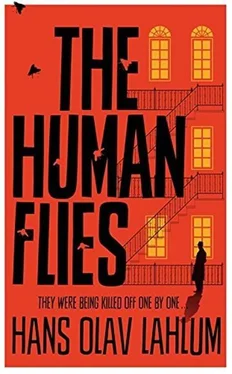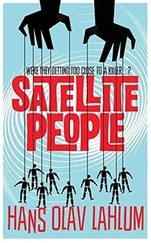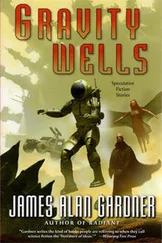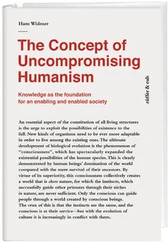As soon as we were alone, Kristian Lund changed character. His eyes became sharper and his movements more tense. This reinforced my impression that he was quite the human chameleon, with a talent for changing his appearance according to the circumstances.
Neither of us wanted to start the conversation, so we each sat there contemplating the other for a couple of minutes. Kristian Lund fished out a cigarette and lit it. It was like a fencing duel in which neither of us wanted to make the first advance, though one of us would have to eventually.
‘So, how can I help you today?’ he asked, in the end.
I instantly took the opportunity to launch a frontal attack. ‘First of all, I would like to know why you lied about your mother when we last spoke.’
A twitch rippled across Kristian Lund’s face. Then he shook his head a couple of times.
‘Hmm, lied… Well, perhaps I didn’t tell you all that I should have done. I realized that afterwards, that I should have mentioned that she was a member of the NS and was sentenced for treason after the war. A good detective such as yourself would of course find that out. But I didn’t think that my mother’s views during the war had anything to do with the murder case, which seemed complicated enough as it was. And what is more, I am fed up with the fact that I, even after my mother’s death, have to answer for things she did in her youth. I have tried to separate my life from it, and that has not always been easy!’
Suddenly, there was a trace of the same bitterness in Kristian Lund’s voice that I had heard in Konrad Jensen’s.
‘I do not deny that my mother was once a Nazi, and that she worked for an inhumane regime whose ideology I deplore, but to me, she was never a Nazi; she was just my mother. And not many I know have a better or kinder mother, especially given all the problems she had after the war. We lived with my grandparents for three years before my mother got an underpaid job as a cleaner. I don’t know how many times I heard or saw people shout abuse at her on the street. And I, who was not even born in 1940, was eleven before I made a friend who was allowed to ask me home. Things did get better after that. Two friends came to my twelfth party, five to my thirteenth and nine to my fourteenth, but there was always a shadow that Mother could not shake off. When I was confirmed and my mother stood up alone in church, several of the parents booed.’
He shook his head in indignation – and continued to let off new steam and old hurt.
‘I swore that I would never allow myself to be broken, but instead would show everyone what I was made of. And I have succeeded. My success was Mother’s only triumph after the war. She was persecuted and struggled with various complexes for years. And when the worst of it was finally over, she got cancer, thanks no doubt to all the cigarettes: I grew up in a cloud of smoke.’
He looked at his cigarette with sudden disgust and stubbed it out aggressively in the ashtray on his desk.
‘I keep trying to stop, but it’s not that easy… You must excuse us if we seem a little nervous at the moment – it has been a difficult winter. Just as things were starting to settle after my mother’s funeral and the christening of our boy, this murder happens. Mother fought bravely to the end, but was unlucky. Her last wish was that she would live long enough to see and hold her first grandchild. She lived four weeks longer than the doctor said she would, but our baby was born too late – by only three days. It has been an extremely demanding and painful time.’
I found all this very interesting and wanted to deal with some more details about Kristian Lund’s situation, which was without doubt not easy.
‘Do your parents-in-law know about your mother’s history?’
Kristian’s laughter was as unexpected as it was short and bitter.
‘I dreaded telling them for a long time, but it was not a problem – and there was no reason for it to be. My father-in-law is worth over four million and earned at least three- quarters of that trading with the occupying forces during the war. His companies broke all records in terms of turnover and profit. But do you think he was sentenced or abused by anyone after the war? Oh no, no one dared to reproach a factory owner from Bærum. A single mother from Drammen, on the other hand, was fair game for anyone. It is a shameful story. But I still do not see what my mother’s sad fate has to do with the murder of my neighbour.’
I nodded, trying to be sympathetic.
‘Nor do I, really. But I would like to know more about your father, if only to ensure that it has nothing to do with the case.’
He laughed again and shook his head firmly.
‘That won’t be easy. Apparently no one other than my mother knows my father’s name, and she is dead. That was the only bone of contention I had with my mother. I understood from a comment she once made that it was someone that she had had a relationship with for some time, and that it could not have been anyone else, but she never told me his name. I nagged and nagged her when I was a teenager. When things were at their worst, I refused to talk to her for a month because she would not tell me. But Mother was stubborn. The only answer she gave was that he had betrayed her and had never cared about me, so it would only make things worse if I knew who he was. Then, when I was around eighteen or nineteen, I said that I agreed with her and seldom asked after that. I tried to convince myself that if that was how he had behaved, he was not the father I would want anyway. But it remained a big question in my life, particularly when I went to business school and was the only one in the class who could not ask his father for money.’
This was becoming more and more interesting. The question of Kristian Lund’s father was yet another little mystery that I wanted to clear up.
‘And you have no idea either?’
He shook his head.
‘I spent a lot of time thinking about it in my youth. Physically, I am fair like my mother and look very like her, so there was not much to be had there. But one of my science teachers once remarked that with a smart brain like mine, I must have an exceptionally intelligent father. I lived on that compliment for a long time, and it was true. My mother was attractive when she was young, and always kind, but she was not particularly intelligent. She helped me with my homework when I was small, but was not of much help once I had finished primary school. Whereas I was top of my class in practically every subject, certainly in middle school. So it is highly likely that my father was – or is – an intelligent man. But otherwise, I have no idea. I was conceived sometime around May or June 1940, so that leaves a number of options. It could have been a German soldier, a Norwegian Nazi-sympathizer or some other Norwegian. My mother and grandparents spoke very little about that time later, so I do not have much to go on. Nowadays I try to think about it as little as possible. And I hope it is of no relevance to the murder case.’
I nodded.
‘We both hope so. But we also have to talk about a certain young woman who lives – and was at home – in the building in which the murder took place, and whom you definitely lied about when we first spoke together.’
The reaction was instant. There was a flash in Kristian
Lund’s eyes. With a slightly shaky hand he lit a new cigarette and took a couple of puffs before he answered.
‘I know what you are talking about. Was it the caretaker’s wife or Sara herself who told you?’
I shook my head.
‘Neither of them. I drew my own conclusions based on the information I had, and probability.’
He nodded with approval.
‘Impressive of you and reassuring for me. I am beginning to believe that you will indeed find the murderer. But that has nothing to do with the murder either. It is, of course, information that may be of some importance in terms of alibis and the like, and I apologize for lying, but I have got myself into rather a sticky situation. My wife does not need to know anything about this, does she?’
Читать дальше











